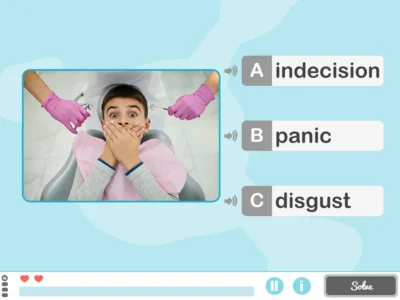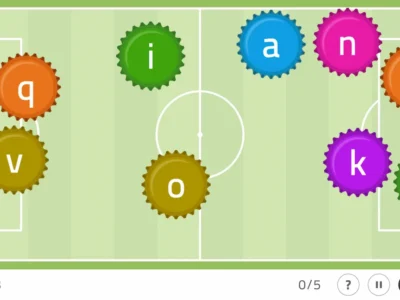In a way, you’ve already used a form of executive functions to search for and click on this article.
And, right now that you’re reading this, you’re using another form of executive function to hold your attention, allowing your brain to minimize any background noise that might have caused a distraction.
But what exactly are executive functions? And why are they so important?
What are executive functions?
According to the definition of the Center on the Developing Child at Harvard University, executive functions refer to “a set of mental processes that allow us to plan time, remember instructions, focus attention and successfully manage multiple tasks.” Thanks to these skills, we are able to filter out distractions, prioritize tasks, control our impulses and set attainable goals in our lives.
Whether concentrating at school, planning a holiday, organizing a gathering with friends and family, creating a campaign at work or assembling a set of IKEA furniture, executive functions give us the ability to handle many areas of life by enabling us to get things done.
Like an orchestra conductor, executive functions efficiently manage the wide range of internal processes of the brain, organizing each “musician” -or cognitive capacity– so they know when to come into action, with whom, how much or how to stop.
Without this level of executive control, our brains simply couldn’t run smoothly or function properly, leaving us with a lack of self-control and an inability to properly manage our behavior.
The role of executive functions
Executive functions play a fundamental role in our ability to function normally. Therefore, when they do not work properly, this can have a drastic effect on our ability to concentrate, manage multiple workloads, discard irrelevant information, control our impulses and remember things effectively.
Not only that, but when these executive functions do not work together, higher-order executive functions can also be affected, impacting our ability to solve problems, reason and plan (Miller and Wallis, 2009).
For this reason, executive function problems are commonly associated with Attention Deficit Hyperactivity Disorder (ADHD) and dementia, two neurological conditions characterized by symptoms such as inattentiveness and a lack of control over emotional reactions.

Subscribe
to our
Newsletter
Problems of executive dysfunction
When executive functions are negatively affected in some way -whether by addiction, lack of sleep, stress or illness- there is often a wide range of consequences.
These vary from person to person, but, in general, they typically include:
Anxiety
Feelings of anxiety are common when executive functions are disrupted.
Stress is believed, for example, to disrupt the working memory and cognitive flexibility (Shields et al., 2016), which impairs our ability to organize ourselves, plan our time and work productively. Due to this inability to concentrate, feelings of panic and anxiety can soon begin to appear, further raising our stress levels and creating a kind of trap.
Delays
Executive functions control our ability to manage time effectively, planning our days to prioritize which tasks need to be done and when. Therefore, in cases where this is affected, many people will often arrive late and find it difficult to know which tasks they should do first.
Likewise, it is common to lose belongings due to failures of executive functions in our working memory.
Lack of self-control
Executive function deficits can also significantly affect someone’s ability to focus and complete tasks, especially when they need to perform multiple tasks at the same time.
This is believed to be due to lack of self-control and the inability to prioritize workloads, which makes us more prone to procrastination or to having trouble controlling impulsive behavior.
How to improve executive functions?
Executive function deficits can be incredibly common, but fortunately, there are several ways to address them.
One of them is cognitive rehabilitation therapy, which aims to improve cognitive functioning in cases of brain injury or cognitive impairment to restore normal functioning or compensate for cognitive deficits.
Also, creating checklists and making calendars, for example, can be very valuable when you have problems with time management, as they make it easier to manage workloads in a more visual format.
Similarly, writing down dates, deadlines, names and phone numbers can reinforce the working memory, helping to ensure that no important information is lost or forgotten inadvertently.
On the other hand, properly managing stress levels can also significantly improve executive functions. Whether practicing mindfulness techniques, spending more time outdoors, seeing friends or family, or simply leaving more time between activities, all forms of stress relief will help keep the brain’s inner gears running.
Conclusions
So, in answer to the question “what are executive functions?”, they are the mental processes that shape our day-to-day lives and make us who we are.
Without them, our lives would be considerably disrupted, which would not only affect our ability to work effectively, but also to maintain relationships.
Therefore, it is important to do what you can to keep your executive functions healthy in the long term. Otherwise, you could end up replacing your lost phone, wallet or keys more often than you’d like.
Bibliography
- Bailey, E. (2022). Improve Working Memory: Brain Training Tricks. Taken from: https://www.additudemag.com/improve-working-memory/.
- Center on the Developing Child Harvard University. (2022). Executive Function & Self-Regulation. Taken from: https://developingchild.harvard.edu/science/key-concepts/executive-function/.
- Fourie, G. (2022). The benefits of quality time in the great outdoors to improve mental health. Taken from: https://www.whiterivermanor.com/news/benefits-of-quality-time-in-the-great-outdoors-to-improve-mental-health/.
- Iverson, B. (2022). Executive Functions and Their Relationship to the Reading Process and Academic Performance. Taken from: https://neuronup.us/cognitive-stimulation-news/cognitive-functions/executive-functions/executive-functions-and-their-relationship-to-the-reading-process-and-academic-performance/.
- Martinez De Toda, M. (2021). Executive functions: Can they be improved?. Taken from: https://neuronup.us/cognitive-stimulation-news/cognitive-functions/executive-functions/executive-functions-can-they-be-improved/.
- Miller, E. & Wallis, J. (2009). Executive Function and Higher-Order Cognition: Definition and Neural Substrates. Encyclopedia of Neuroscience. 4, 99 6104. DOI: 10.1016/B978-008045046-9.00418-6.
- Neuron UP. (2022). Attention Deficit Hyperactivity Disorder (ADHD). Taken from: https://neuronup.us/neurorehabilitation/neurodevelopmental-disorders/adhd/.
- Shields, G., Sazma, M. & Yonelinas, A. (2016). The effects of acute stress on core executive functions: A meta-analysis and comparison with cortisol. Neuroscience & Biobehavioural Reviews. 68, 651 668.
If you liked this post about executive functions, you might be interested in these posts from NeuronUP:
“This article has been translated. Link to the original article in Spanish:”
Las funciones ejecutivas: qué son, cuál es su papel y cómo mejorarlas







 ADHD in Children and the Sleep Disorders Associated with It
ADHD in Children and the Sleep Disorders Associated with It
Leave a Reply